Vauxhall Mokka vs Toyota C-HR - Differences and prices compared
Compare performance (281 HP vs 223 HP), boot space and price (23000 £ vs 29100 £ ) at a glance. Find out which car is the better choice for you – Vauxhall Mokka or Toyota C-HR?
Costs and Efficiency:
Price and efficiency are often the first things buyers look at. Here it becomes clear which model has the long-term edge – whether at the pump, the plug, or in purchase price.
Vauxhall Mokka has a distinct advantage in terms of price – it starts at 23000 £ , while the Toyota C-HR costs 29100 £ . That’s a price difference of around 6086 £.
Fuel consumption also shows a difference: Toyota C-HR manages with 0.80 L and is therefore decisively more efficient than the Vauxhall Mokka with 4.90 L. The difference is about 4.10 L per 100 km.
As for electric range, the Vauxhall Mokka performs significantly better – achieving up to 403 km, about 335 km more than the Toyota C-HR.
Engine and Performance:
Power, torque and acceleration are the classic benchmarks for car enthusiasts – and here, some clear differences start to show.
When it comes to engine power, the Vauxhall Mokka has a noticeable edge – offering 281 HP compared to 223 HP. That’s roughly 58 HP more horsepower.
In acceleration from 0 to 100 km/h, the Vauxhall Mokka is clearly perceptible quicker – completing the sprint in 5.90 s, while the Toyota C-HR takes 7.40 s. That’s about 1.50 s faster.
In terms of top speed, the Vauxhall Mokka performs to a small extent better – reaching 209 km/h, while the Toyota C-HR tops out at 180 km/h. The difference is around 29 km/h.
Space and Everyday Use:
Cabin size, boot volume and payload all play a role in everyday practicality. Here, comfort and flexibility make the difference.
Both vehicles offer seating for 5 people.
In curb weight, Vauxhall Mokka is slightly lighter – 1294 kg compared to 1505 kg. The difference is around 211 kg.
In terms of boot space, the Toyota C-HR offers clearly perceptible more room – 447 L compared to 350 L. That’s a difference of about 97 L.
In maximum load capacity, the Toyota C-HR performs barely noticeable better – up to 1155 L, which is about 50 L more than the Vauxhall Mokka.
When it comes to payload, Toyota C-HR slight takes the win – 425 kg compared to 400 kg. That’s a difference of about 25 kg.
Who wins the race in the data check?
The Toyota C-HR sits well ahead of its rival in the objective data comparison.
This result only shows which model scores more points on paper – not which of the two cars feels right for you.
Costs and Consumption
View detailed analysis
Engine and Performance
View detailed analysis
Dimensions and Body
View detailed analysis

Toyota C-HR
Vauxhall Mokka
The Opel Mokka cuts a smart, modern silhouette that feels right at home in the city while still turning heads on the open road. It's a practical, easy-to-live-with crossover that blends comfy driving manners with enough flair and tech to keep daily commutes interesting — and it won’t make you regret trading up.
details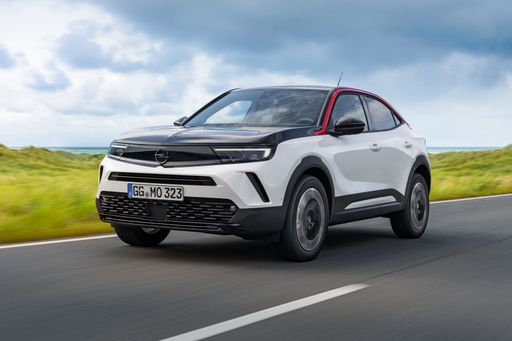
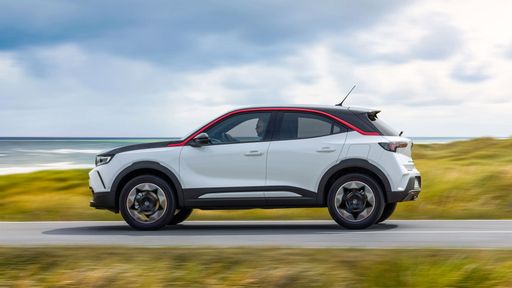
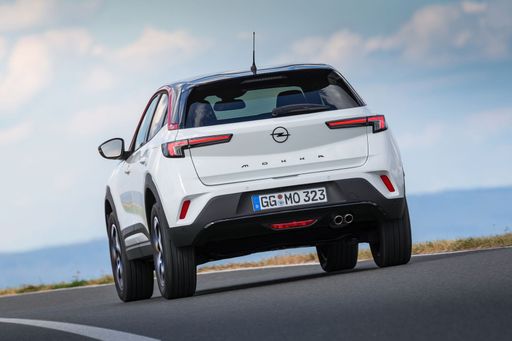
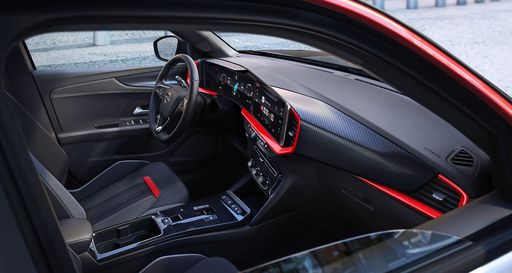
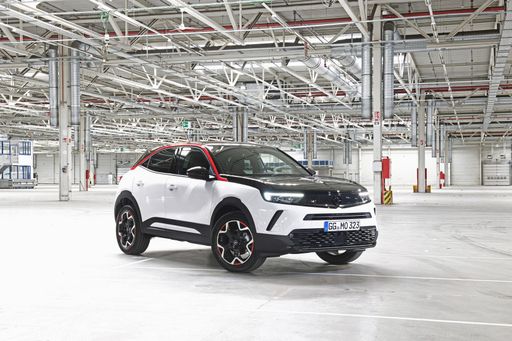
Toyota C-HR
The Toyota C-HR cuts a striking figure with its angular styling and coupe-like profile, so you’ll never go unnoticed in the supermarket car park. It balances everyday practicality with a nimble, city-friendly personality, making routine commutes feel a touch more fun without asking for forgiveness.
details




Costs and Consumption |
|
|---|---|
|
Price
23000 - 40500 £
|
Price
29100 - 42800 £
|
|
Consumption L/100km
4.9 - 5.7 L
|
Consumption L/100km
0.8 - 5.1 L
|
|
Consumption kWh/100km
15.4 - 18.5 kWh
|
Consumption kWh/100km
-
|
|
Electric Range
336 - 403 km
|
Electric Range
68 km
|
|
Battery Capacity
51 kWh
|
Battery Capacity
-
|
|
co2
0 - 129 g/km
|
co2
17 - 115 g/km
|
|
Fuel tank capacity
44 L
|
Fuel tank capacity
43 L
|
Dimensions and Body |
|
|---|---|
|
Body Type
SUV
|
Body Type
SUV
|
|
Seats
5
|
Seats
5
|
|
Doors
5
|
Doors
5
|
|
Curb weight
1294 - 1672 kg
|
Curb weight
1505 - 1755 kg
|
|
Trunk capacity
310 - 350 L
|
Trunk capacity
350 - 447 L
|
|
Length
4150 mm
|
Length
4362 mm
|
|
Width
1787 mm
|
Width
1832 mm
|
|
Height
1506 - 1535 mm
|
Height
1558 - 1564 mm
|
|
Max trunk capacity
1060 - 1105 L
|
Max trunk capacity
1076 - 1155 L
|
|
Payload
388 - 400 kg
|
Payload
375 - 425 kg
|
Engine and Performance |
|
|---|---|
|
Engine Type
Electric, Petrol MHEV, Petrol
|
Engine Type
Full Hybrid, Plugin Hybrid
|
|
Transmission
Automatic, Manuel
|
Transmission
Automatic
|
|
Transmission Detail
Reduction Gearbox, Dual-Clutch Automatic, Manual Gearbox
|
Transmission Detail
CVT
|
|
Drive Type
Front-Wheel Drive
|
Drive Type
Front-Wheel Drive, All-Wheel Drive
|
|
Power HP
136 - 281 HP
|
Power HP
140 - 223 HP
|
|
Acceleration 0-100km/h
5.9 - 9 s
|
Acceleration 0-100km/h
7.4 - 9.9 s
|
|
Max Speed
150 - 209 km/h
|
Max Speed
175 - 180 km/h
|
|
Torque
230 - 345 Nm
|
Torque
-
|
|
Number of Cylinders
3
|
Number of Cylinders
4
|
|
Power kW
100 - 207 kW
|
Power kW
103 - 164 kW
|
|
Engine capacity
1199 cm3
|
Engine capacity
1798 - 1987 cm3
|
General |
|
|---|---|
|
Model Year
2024 - 2025
|
Model Year
2024 - 2025
|
|
CO2 Efficiency Class
A, C, D
|
CO2 Efficiency Class
C, B
|
|
Brand
Vauxhall
|
Brand
Toyota
|
What drive types are available for the Vauxhall Mokka?
The Vauxhall Mokka is offered with Front-Wheel Drive.




